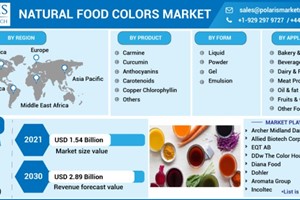The evolving landscape of food regulations presents a significant challenge for food manufacturers, particularly concerning the use of artificial food dyes. Notably, two prominent brands have recently taken divergent paths in response to these regulations. Froot Loops announced it would retain its artificial colors, while Pop-Tarts has opted to eliminate them, according to multiple reports.
Assessing the Business Decision: Artificial Dyes
The decision by food manufacturers to either retain or replace artificial dyes hinges on multiple factors, including regulatory pressures, consumer health concerns, and market preferences. The Food Institute has explored this issue, consulting with industry experts to understand the implications and future trends of artificial food dyes.
Health Risks Associated with Artificial Dyes
Artificial dyes such as Red No. 3 and Red No. 40 have been linked to serious health concerns, including cancer, neurobehavioral issues, and hyperactivity. Red No. 3 was banned in California last year and is already restricted in most of Europe. A proposed bill in California seeks to ban seven additional dyes due to their health risks. This regulatory momentum raises questions about the long-term viability of artificial dyes in the food industry.
Industry Responses to Regulatory Changes
Responses from food manufacturers vary widely. Kellanova, the producer of Pop-Tarts and Rice Krispies, is actively working to replace artificial additives with natural alternatives. In contrast, Kellogg, which makes Froot Loops, has not pursued alternatives due to the absence of legal restrictions in many markets.
Potential for Nationwide Ban on Red No. 3
Experts believe a nationwide ban on Red No. 3 is plausible but complex due to regulatory and legal challenges. Dr. Raj Dasgupta, Chief Medical Advisor for Fortune Recommends Health, notes the inconsistency in current regulations: although Red No. 3 was banned from cosmetics over 30 years ago due to its carcinogenic effects in animals, it remains approved for use in food.
Expert Opinions on Future Preparations
Experts strongly advise food manufacturers to prepare for potential dye bans. Dr. Dasgupta emphasizes that early investment in natural dye alternatives can position companies favorably for future regulatory changes and align with consumer demand for healthier, eco-friendly products. Nutritionist Michael O. McKinney concurs, highlighting that early preparation demonstrates a commitment to health and customer satisfaction, while also providing a strategic advantage against abrupt policy shifts.
Ideal Alternatives to Synthetic Dyes
Natural alternatives to synthetic dyes, such as beet extract, turmeric, spirulina, and carrot juice, are becoming increasingly popular. Advances in food science have enhanced these options, making them more viable in terms of color range, stability, and cost-effectiveness. Dr. Dasgupta notes that these natural dyes meet the growing consumer interest in healthier food choices, potentially providing a competitive edge for early adopters.
The divergence in strategies by Froot Loops and Pop-Tarts underscores the broader industry challenge of adapting to new regulations on artificial food dyes. As health concerns and regulatory pressures mount, the transition to natural alternatives appears not only prudent but potentially advantageous for food manufacturers. By anticipating regulatory changes and investing in natural dye options, companies can enhance their market position and meet evolving consumer preferences for healthier and more sustainable products.
By: TESS OWINGS
https://foodinstitute.com/












